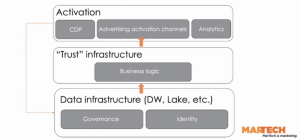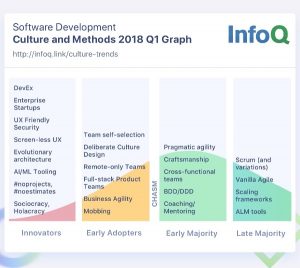AI dupes threaten brand integrity and consumer trust. Discover cutting-edge solutions and legal approaches to combat counterfeiters.
Brands today face a new and formidable threat: AI-powered dupes. These sophisticated copycats are eroding consumer trust, diluting brand identities and damaging bottom lines.
The cost? The sale of counterfeit products is a $ 2 trillion criminal enterprise that impacts virtually every industry, according to the National Crime Prevention Council (NCPC). Just last year, U.S. Homeland Security and the NYPD seized over $ 1 billion of counterfeit luxury goods in a single, massive bust.
And hand-in-hand with the devastating financial impact of dupes is the very real loss of trust brands suffer in their wake. As the NCPC states, counterfeit products can cause “fires, skin rashes and even death.” Just google “exploding cell phone,” and you’ll see what I mean.
As a marketing CEO and industry veteran, I’ve seen firsthand how this trend is reshaping marketing as we know it. It’s forcing brands to rethink their protection strategies and AI has kicked things into high gear.
The AI dupe dilemma
Artificial intelligence has revolutionized many aspects of business but has become a double-edged sword. While AI enhances productivity and innovation, it also empowers counterfeiters and imitators to create increasingly convincing fakes. From luxury goods to pharmaceuticals, no industry is immune. Nearly 70% of consumers unknowingly purchased counterfeit products online in the past year alone.
This surge in AI-powered dupes isn’t just a financial issue — it’s a brand integrity crisis. When consumers receive subpar knockoffs, they often blame the brand, not realizing they’ve been duped. This erosion of trust can take years to rebuild — if it’s possible at all.
The tech battle against brand fraud
Fortunately, the same technology powering these sophisticated dupes is also at the forefront of brand protection. Companies like Ennoventure are fighting fire with fire, leading the charge with innovative, AI-driven solutions.
And Ennoventure’s approach is particularly intriguing. They’ve developed an invisible encryption technology that seamlessly integrates into product packaging or the products themselves. This AI-powered solution adapts and evolves, staying one step ahead of counterfeiters. What’s more, it requires no additional hardware or changes to production lines, making it a cost-effective option for brands of all sizes.
“Our vision extends beyond individual markets,” says Chad Kite, CCO of Ennoventure. “We’re here to revolutionize brand protection on a global scale, making it easier and more cost-effective for brands everywhere to adopt and adapt our solutions.”
The legal landscape of AI and IP
As technology evolves, so must the legal frameworks protecting intellectual property. This is where forward-thinking law firms like Caldwell come into play. They’re at the forefront of navigating the complex intersections of AI, innovation and IP law.
Keegan Caldwell, the firm’s founder, emphasizes the increasing value of human ingenuity in the AI era. “In this new paradigm, human creativity, nuance and original thought are becoming more valuable than ever,” he notes. This perspective underscores the importance of cutting-edge, robust IP protection strategies that account for both human and AI-generated innovations.
Caldwell’s firm is helping businesses adapt to new legal realities, including copyright protection for AI-generated works, patent eligibility for AI-assisted inventions and trade secret protection in an age of data-hungry AI systems.
Protecting your brand in the AI age
How can you safeguard your brand against AI dupes? Here are some key strategies:
- Invest in advanced authentication: Consider technologies like Ennoventure’s invisible encryption. These solutions make it easier for consumers to verify product authenticity, building trust and deterring counterfeiters.
- Educate your consumers: It can be challenging for consumers to distinguish between real and fake products online. Launch campaigns to help your audience spot the real deal.
- Monitor online marketplaces: Use AI-powered tools to scan e-commerce platforms for potential counterfeits. Swift action can prevent significant damage to your brand.
- Strengthen your IP strategy: Work with specialized firms like Caldwell to ensure your IP protection strategy is robust and adaptable to AI challenges.
- Leverage blockchain: Consider implementing blockchain technology to create an immutable record of your products’ journey from production to consumer.
Partnerships with anti-counterfeiting technology providers, IP law specialists and R&D tax credit consultants can empower and support your brand’s innovation efforts from inception to market launch and beyond.
The road ahead
As AI continues to evolve, so will the challenges and opportunities in brand protection. The brands that thrive will proactively adapt, leveraging the latest technologies and legal strategies to safeguard their intellectual property.
Remember, in the digital world, your brand’s uniqueness is more valuable than ever. By taking steps to protect it now, you’re not just defending against current threats — you’re future-proofing your brand for the AI-driven marketplace of tomorrow.
The post How to protect your brand from AI dupes appeared first on MarTech.
MarTech(11)
Report Post





